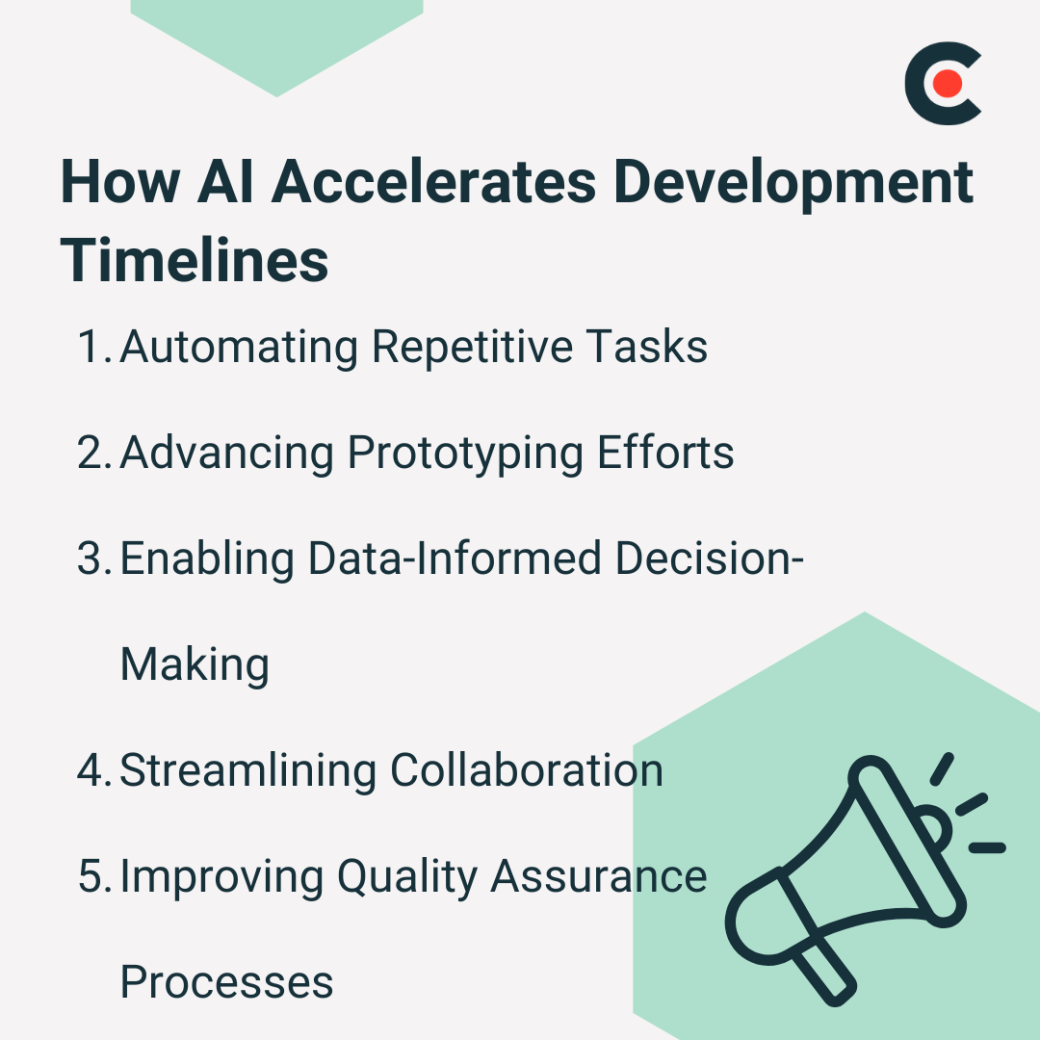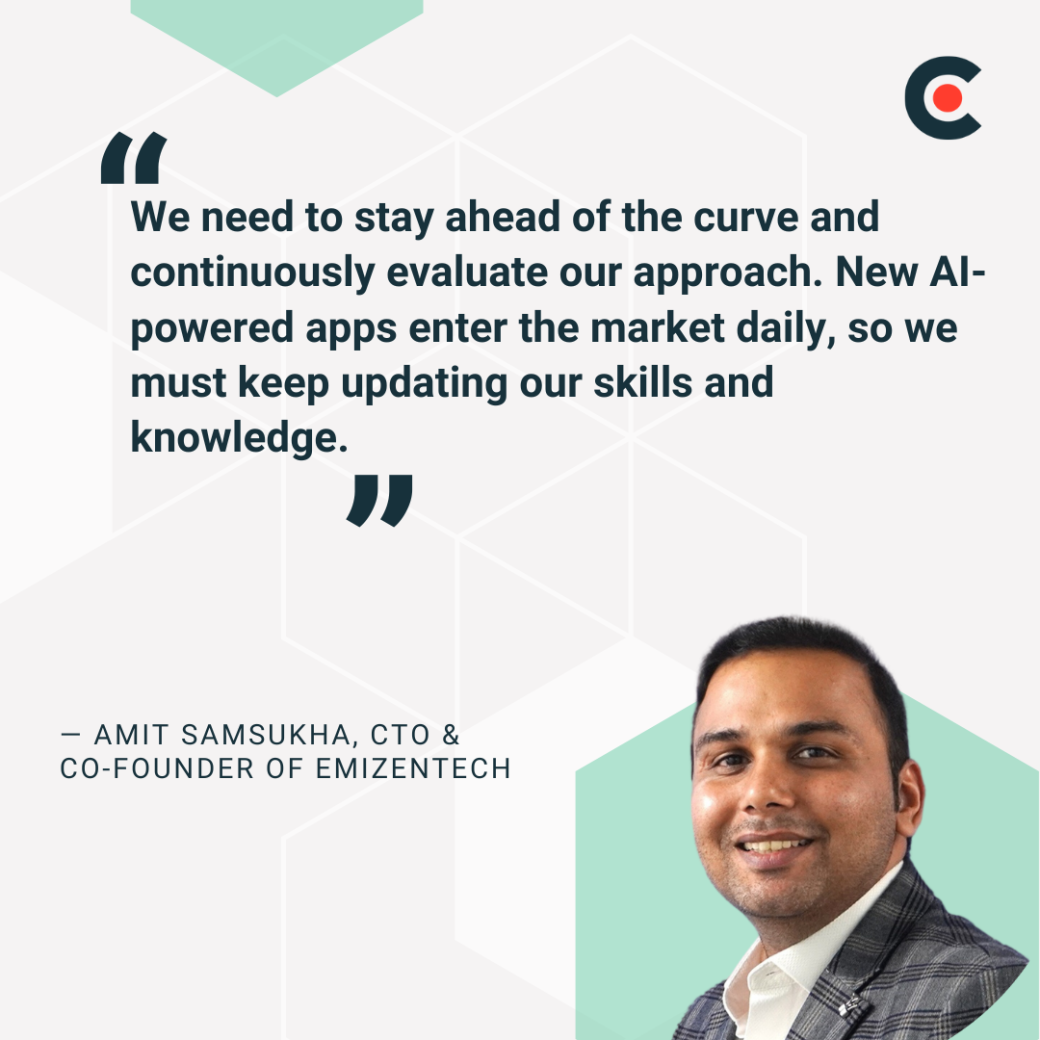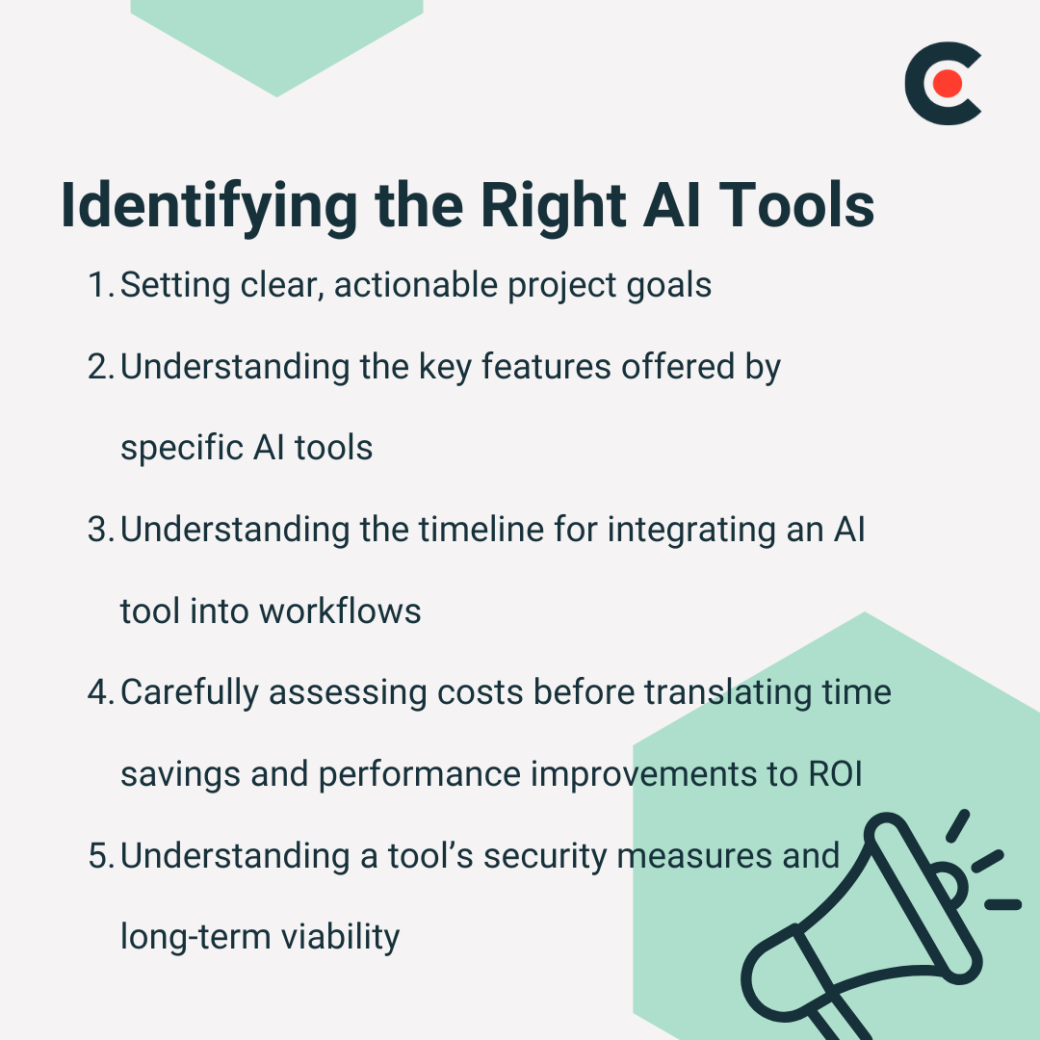

Updated March 14, 2025
AI technology is reshaping the world of app development, from AI-powered insights that enable developers to align mobile apps with user preferences to automation that allows developers to focus on design instead of repetitive tasks. Could AI strengthen your next successful app? Hear from Amit Samsukha, Co-Founder & CTO of EmizenTech.
Technological advances have a history of impacting mobile app development. For example, the interconnectivity made possible by the Internet of Things (IoT) technology allows mobile apps to pull and analyze data from multiple devices, advancing personalization and interactivity in app design and improving user experience.
A new wave of tech innovations fueled by artificial intelligence (AI) is reshaping how mobile apps are built. Rapid advancements in AI technologies are streamlining processes throughout development and accelerating timeliness in several ways.
Looking for a Artificial Intelligence agency?
Compare our list of top Artificial Intelligence companies near you
Here’s what you should know based on insights from Amit Samsukha, Co-Founder & CTO of EmizenTech.
New and emerging AI technologies have several applications for mobile app development. This allows you to streamline the process and significantly accelerate development timelines.
In our interview, Amit Samsukha highlights how AI tools help development processes and day-to-day tasks.
“I advocate for integrating AI tools directly into the development process to accelerate our workflow. With today's tight timelines - clients often wanting applications delivered in six to eight weeks - using AI tools allows us to complete integrations much faster.” Samsukha shares.
From early brainstorming sessions to design, prototyping, and testing, through the launch of the finished product and even post-launch updates, mobile app developers can leverage the power of AI to create better, more user-centric apps much more quickly.
Here are some ways AI accelerates development timelines:

Designing and developing mobile apps involves many repetitive tasks that are time-consuming and tedious for humans. Despite their monotonous natures, those tasks are often integral to the development process.
For instance, coding, the process of writing the language that provides the framework of an app’s functionality, is an extremely tedious task. Depending on the complexity of the project, developing a mobile app can take as long as nine months, and developers spend a substantial portion of that time writing and revising code.
But thanks to AI developments, many repetitive tasks, including coding, can be reassigned to automated AI tools. App creators can accelerate development timelines by automating AI to generate code snippets or even codes that describe entire app functions in much less time than it would take a human to do so. Not only does this shorten the timeframe for app coding, but it can improve the development process by freeing developers up to focus on other aspects of app creation, such as UI/UX design, architecture planning, and problem-solving.
Applying AI tools to prototyping is another way AI developments are quickening the pace of mobile app creation. App developers rely on prototyping to test concepts, iterate designs, and improve the overall quality of the finished product; this phase can prolong the development process by about three to six weeks.
AI automation helps developers reclaim some of that time by improving prototype testing. AI tools are adept at performing a range of common product testing methods without human intervention, such as regression, load, and UI testing.
AI tools don’t merely administer tests and analyze the results. Developers can automate AI tools to simulate how human users might interact with an app, allowing them to spot design flaws earlier, correct them faster, and avoid delays later on.
AI-powered data analytics are improving decision-making processes in industries across the spectrum.
In mobile app development, AI can collect and analyze user data and generate valuable insights. This allows developers to accelerate their timelines by having AI quickly perform analytic processes, identify patterns and trends, and deliver effective insights and recommendations.
Mobile app development is an inherently collaborative process. From start to finish, it requires the skills, expertise, and creativity of cross-functional teams and individuals from areas like programming, UX design, coding, and more.
Rapidly advancing AI developments are improving how design teams collaborate in several ways, including:
AI tools can accelerate development timelines by making quality assurance (QA) processes more efficient. For example, AI tools can build test cases that help developers imagine and map user journeys.
State-of-the-art AI tools analyze user data to create these test cases and make accurate assumptions about user interactions. Additionally, AI systems trained in Natural Language Processing (NLP) can read, interpret, and translate user requirements and instructions into test journeys.
The ramifications of AI development on mobile app development are well-known to the organizations that hire developers to bring their app ideas to life. For developers, that potentially translates to increased pressure to meet client expectations for abbreviated project timelines.
During our interview with Samsukha, he talks about how evolving client expectations inspired them to adapt. “It's [AI] changing the entire mindset around development. Everyone wants to leverage AI and its features, so we need to adapt our development process to meet these accelerated timelines.”
Samsukha adds “We need to stay ahead of the curve and continuously evaluate our approach. New AI-powered apps enter the market daily, so we must keep updating our skills and knowledge.”

It’s important to remember that even with AI accelerating development timelines, mobile apps are not built overnight. For that reason, it’s important for developers and clients alike to understand the development process accurately, discuss the expectations for completion, and set realistic project timelines.
The rate of AI development is good news for developers who can capitalize on the opportunities AI technology offers. It also requires developers to stay on top of the latest trends and advancements. Not only will this better position them to apply AI technology to their work, but it will also benefit how they negotiate client expectations.
For instance, recent developments in Generative AI (GenAI) and machine learning have profound implications for app development. As discussed earlier, GenAI can streamline code generation and save human developers time.
Through machine learning, app developers can create apps that provide more satisfying and personalized user experiences. Machine learning uses complex algorithms to analyze user data and gain insights about individual users’ preferences, pain points, and behaviors. These insights can then inform app design and functionality decisions, enabling developers to meet and exceed user expectations.
Accelerating development timelines isn’t merely about applying wholesale AI solutions. Achieving optimal efficiency requires carefully selecting the AI tools best suited to specific projects.
Developers can make better decisions by:

Apps that run on AI-generated code. Product prototypes that are tested and refined by AI.
AI-enabled data and insights drive decision-making. Disparate teams united by AI scheduling tools. Undoubtedly, the size and scale of the transformations that AI is bringing to mobile app development are exciting.
They can also be overwhelming. That said, AI poses a number of benefits for developers and their clients—accelerating development timelines, lowering expenses, and ultimately leading to mobile apps that positively impact users.

Amit Samsukha, Co-Founder and CTO of Emizentech, is an e-commerce and IT expert and consultant. With a decade of experience in eCommerce and mobile app technologies, Amit has been assisting businesses across the globe with how to leverage digital capabilities to build and improvise their IT infrastructure.


